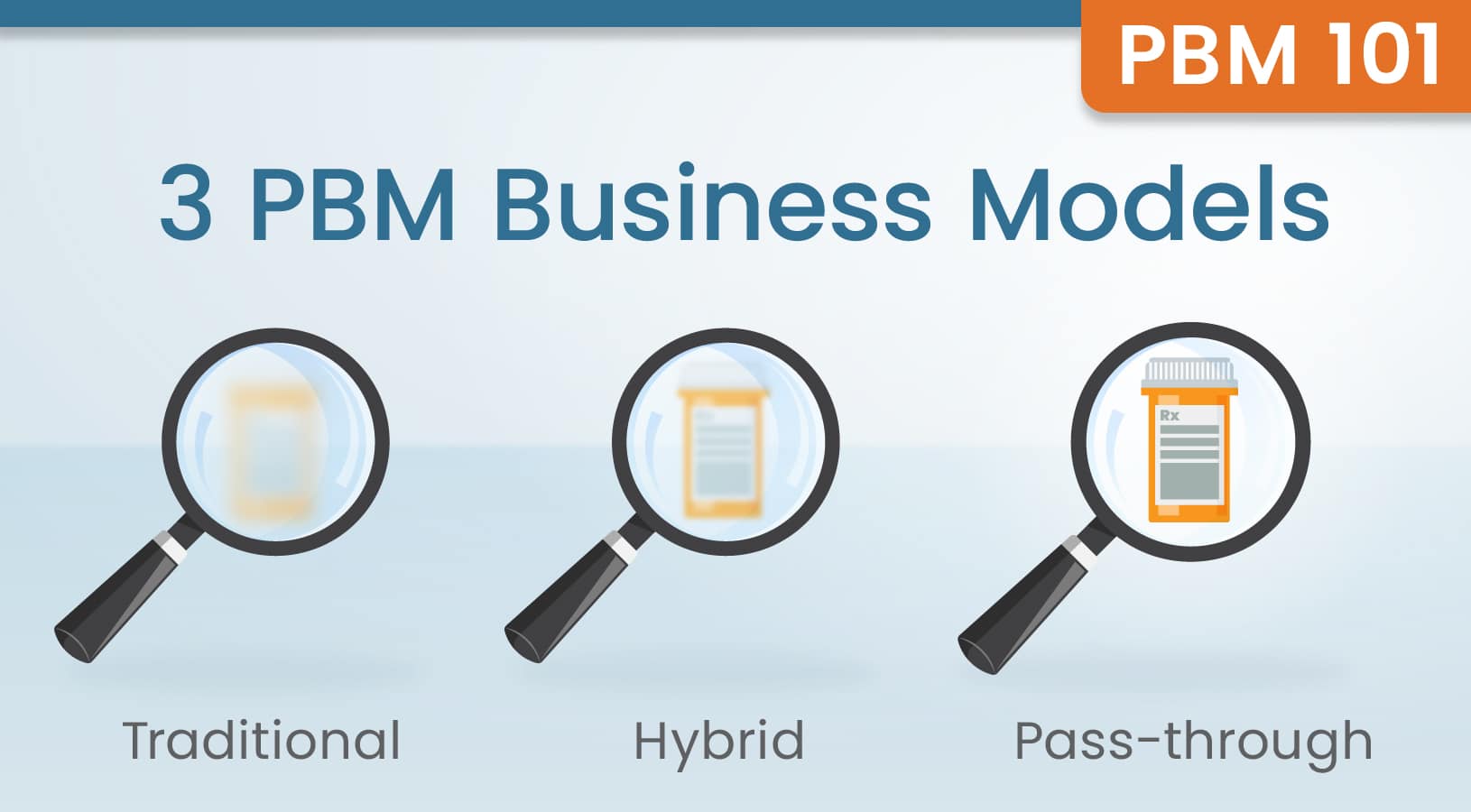2023 Outlook: PBMs Will Focus on Humira Biosimilars, Specialty Drug Spend, FTC Probe
For the past few years, PBMs and plan sponsors have waited for the arrival of Humira (adalimumab) biosimilars. The first such product, Amgen’s Amjevita, is expected to hit the market on Jan. 31, more than six years after the FDA approved the drug. The agency has approved seven other Humira biosimilars, some of which are expected to become available next year, as well.
The competition means AbbVie, Humira’s manufacturer, will no longer have a monopoly on the drug category, which generated $13.6 billion in revenue in the U.S. during the first nine months of 2022, up 6.5% from the same time period in 2021.
PBM industry professionals tell AIS Health, a division of MMIT, that the impact of Humira biosimilars is one of the main topics they are planning on following in 2023. Other subjects include specialty pharmaceuticals accounting for a larger proportion of drug spend, startup PBMs and what will come out of an investigation by the Federal Trade Commission (FTC) into the major PBMs.
HUMIRA BIOSIMILARS ARE POISED TO DEBUT
Recently, two of the three largest PBMs revealed how they’ll cover the Humira biosimilars. Optum Rx will cover up to three of the biosimilars on the same tier as Humira on its 2023 formularies, per a Bloomberg report. Meanwhile, Cigna Corp.’s Express Scripts said it will cover biosimilars as preferred products on its largest formularies. The remaining member of the Big Three, CVS Health Corp.’s Caremark, has not disclosed its plans.
Brian Anderson, a principal specializing in pharmacy benefits at Milliman Inc., tells AIS Health he’s interested to see the pricing of Humira and its biosimilars. He expects the list price of the biosimilars to be lower than Humira, but he adds that “I’m not expecting much price improvement with the biosimilar.” He also anticipates AbbVie will provide a rebate for brand-name Humira to offset the cost and make it cheaper for the plan sponsor or member. That could keep AbbVie’s market share high.
“[AbbVie] is going to play that strategy as much as they can through next year and into 2024,” Anderson says. “We’ll see about the niche [biosimilar] products that come after that. This is really setting the stage for biologics. We’ve seen other [biosimilars] have big impacts, but this one’s the largest. When I sit down with clients, Humira’s in the top three, if not top two [of drug spend], all the time.”
AbbVie’s pricing strategy is likely to change throughout 2023 as more biosimilars become available and the company assesses its market share, according to David Fields, president and chief executive of Navitus Health Solutions, a Madison, Wis. based PBM.
“I think there’s going to be a significant reduction in cost, but I don’t think what comes out in the spring will necessarily look like the exact strategy in late summer or into fall,” Fields says. “I think more competitors in the marketplace will change it just a bit. And in general, then you’ll begin to see in future years, more biosimilars roll out. The industry seems to be getting more comfortable with them. I think it is a positive development for pharmacy trend.”
PBMS ARE LOOKING TO MANAGE SPECIALTY PHARMACY TREND
Although Fields foresees a reduction in the overall cost of managing patients who take Humira or a biosimilar, he notes that biosimilars will likely remain expensive and be considered a specialty medication due to their high costs.
At Navitus and many other PBMs, specialty medications account for more than 50% of pharmacy spend, a significant increase in the past few years. Fields expects that to continue, particularly with the introduction of high-cost cell and gene therapies and medications to treat rare diseases.
Last month, for instance, the FDA approved Hemgenix (etranacogene dezaparvovec drib), the first gene therapy for adults with hemophilia B. The drug has a list price of $3.5 million. Another gene therapy approved this year, Zynteglo (betibeglogene autotemcel) carries a $2.8 million wholesale acquisition cost.
“Where you are seeing real growth in pharmacy spend is specialty meds,” Fields says. “The number of people that are prescribed specialty medications continues to go up and the new medications that are coming out to address certain disease states…can be very, very expensive. While generics may be driving the price down, specialty is driving the overall cost of medications up a lot.”
Peter Manoogian, a principal at ZS Associates, says PBMs are taking steps to address and manage the growing costs of specialty medications through utilizing technology and investing in data analytics, among other initiatives.
“From some of our research, plan sponsors in particular, especially the larger self funded plans, really see specialty pharmacy management as one of the most important attributes for PBMs as they’re looking to select a PBM or stick with a PBM,” Manoogian says. “We’re seeing those investments get made, particularly with the larger PBMs, to meet that growing need.”
He adds: “Getting more into predictive analytics to help predict behavior and make interventions at the right time, I think the larger PBMs are doing this. They’re also continuing to invest in specialty pharmacies, in rare disease and cell and gene therapy capabilities. They’re looking to provide a more diverse set of services as well as using their scale to assess patient risk and non-adherence so that they can help drive cost savings as well as improvements in clinical outcomes and ROI [return on investment].”
STARTUP PBMS MAY SEE LARGER IMPACT IN 2023
In 2021, Express Scripts, Optum Rx and CVS Caremark processed 80% of all equivalent prescription claims, according to research from the Drug Channels Institute, a pharmaceuticals research firm. Those three big PBMs will continue to dominate for the foreseeable future, but Manoogian and others are interested to see the impact newer PBMs will have on the market.
PBMs that have launched in recent years include Capital Rx; Drexi; and EmsanaRx, a not-for-profit PBM owned by the Purchaser Business Group on Health. The companies have different prospects, but they all aim to offer more transparency than the traditional PBMs.
“The larger PBMs by no means are at a threat right now just given scale differences, but I do think PBMs need to continue thinking about how they’ll engage and compete with this model by providing more transparency,” Manoogian says. “[Transparency] is what [startup PBMs] tout. I think the question is, do they have the scale to offer the right breadth of drugs on formulary? Is it more of a narrower set of offerings for their clients? Those are the questions that remain. Time will tell whether some of these will scale appropriately.”
Fields says he welcomes the startup PBMs, which he views as having a similar approach to Navitus and passing along cost savings to their customers. Navitus earns money through an administrative fee and has no other sources of revenue, according to Fields. He adds that the PBM serves 8.9 million lives, up from 5 million lives four years ago, and is aiming to cover more than 15 million lives within the next two to three years.
“We frankly are glad to see [the startup PBMs] because for so long we were the only ones out there talking about transparency and pass-through. It was kind of lonely. We’re glad to have other people talking about the right directions for this industry,” he tells AIS Health.
INDUSTRY AWAITS RESULTS OF FTC INVESTIGATION
In June, the FTC voted unanimously to launch an investigation of the business practices of the largest six PBMs: Caremark; Express Scripts; Optum Rx; Humana lnc.’s Pharmacy Solutions unit; Prime Therapeutics; and Medlmpact Healthcare Systems, Inc. The agency noted it would focus on how vertically integrated PBMs affect the access and affordability of prescription drugs.
The agency and regulators in Washington, D.C. have been quiet publicly about the state of the investigation. Anderson predicts that representatives from some of those companies could be called in 2023 to testify on Capitol Hill similar to the recent hearings over cryptocurrency firms, although what will come out of the FTC investigation or any possible hearings could be minimal in terms of impact.
The PBM industry “is such a niche, complex industry,” Anderson says. “It’s really hard to figure out what [regulators] would pinpoint to look at.”
He adds: “There could be some interest [from regulators], but I don’t expect much to come of anything. [PBMs] are not doing anything fraudulent. They’re just leveraging capitalism to their advantage.”
Fields, meanwhile, says he’s eager to see what the FTC finds and what information the big PBMs are willing to share.
“On a personal level, I’m glad that the FTC has decided to take a look at it because it is a bit unusual for the top three competitors to control 85% of any market in the U.S.,” Fields says. “Whenever you see the top three competitors in control of 85% of a market, you wonder how did they get there? They have reached a significant concentration of power, and are they using that power appropriately? I’ll be as curious as the next [person] as to what the FTC finds in this because it is a bit of an unnatural state. You don’t see 85% concentrated in three competitors in most industries.”
Contact Anderson at [email protected], Fields via Tricia Dutton at [email protected] and Manoogian at [email protected].
Copyright © 2022 by AIS Health, a division of Managed Markets Information & Technology, LLC. Reprinted with permission from AIS Health, an MMIT company, aishealth.mmitnetwork.com.

MORE ABOUT DAVID
David Fields is the President and CEO at Navitus Health Solutions. He provides enterprise leadership and strategic direction for Navitus, collaborating with the executive management team to maintain Navitus strategic plan and to develop and direct its goals, policies and execution. David has held leadership positions on a number of boards, including the American Heart Association, American Red Cross, Labor-Management Council and the National Conference of Christians and Jews.
Stay Informed and Connected
Receive expert insights, healthcare tips, and important updates on pharmacy benefits, drug recalls, and more—straight to your inbox.
Examining Trends that Drive Informed Decisions
Now Available: 8th Annual Drug Trend Report
See the latest results and access industry insights you need to navigate current trend drivers.








